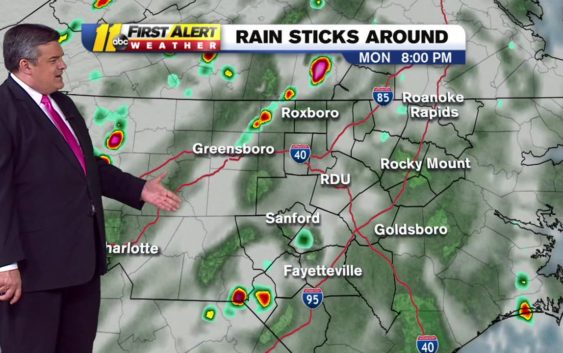- Fake job seekers are flooding the market, thanks to AI
- One set of evacuation orders lifted in Caldwell County after wildfire contained
- 'We gutted every building' | Chimney Rock rebuilding after Hurricane Helene
- 'We gutted every building' | Chimney Rock rebuilding after Hurricane Helene
- Debris from Hurricane Helene provides fuel, complicates containment for spring wildfires
How to avoid scams while helping victims of Hurricane Florence

NORTH CAROLINA —
Hurricane Florence brought devastating floods and to the Carolinas and killed at least 37, leaving people needing to rebuild.
Related: Relief money available for 18 NC counties, applications now open
If you would like to help those affected by the storm, here’s what you should keep in mind.
Check the charity
Before you donate to a charity, make sure you know where your aid is going.
The Center for International Disaster Information has compiled a list of charities that are sending help, and it recommends checking with a charity monitoring organization like GiveWell, Charity Navigator, Charity Watch, or the Better Business Bureau before donating.
Make sure your donation is secure by going through an organization’s official website or sending a check in the mail. Charity Navigator said you should never donate over the phone, email or unknown social media pages, as these are easier for scammers to target.
Give cash, not supplies
Most charities prefer monetary donations, especially if you plan to donate internationally. These are more flexible and cause less of a strain on the charity, allowing them to help more, the CIDI explained.
“Unlike material donations, cash involves no transportation costs, shipping delays, or customs fees. It also enables relief organizations to spend more time providing aid by spending less time managing goods,” the organization explained on its website.
Consider volunteering
The Red Cross has put out a call for volunteers to help the affected areas in the Carolinas.
“Candidates with the greatest likelihood of being chosen have fluency in the language of the disaster-affected area, prior relief experience, and expertise in technical fields such as medicine, communications, logistics, water/sanitation, and engineering,” the CIDI explained.
Know that blood is needed
If you can’t donate money or travel to affected areas, consider donating blood. The Red Cross told ABC11 they had to cancel blood drives because of the storm, adding to an already urgent need for blood and platelets.
The organization encourages everyone in parts of the country that aren’t affected, especially people who have type O blood, to make an appointment.